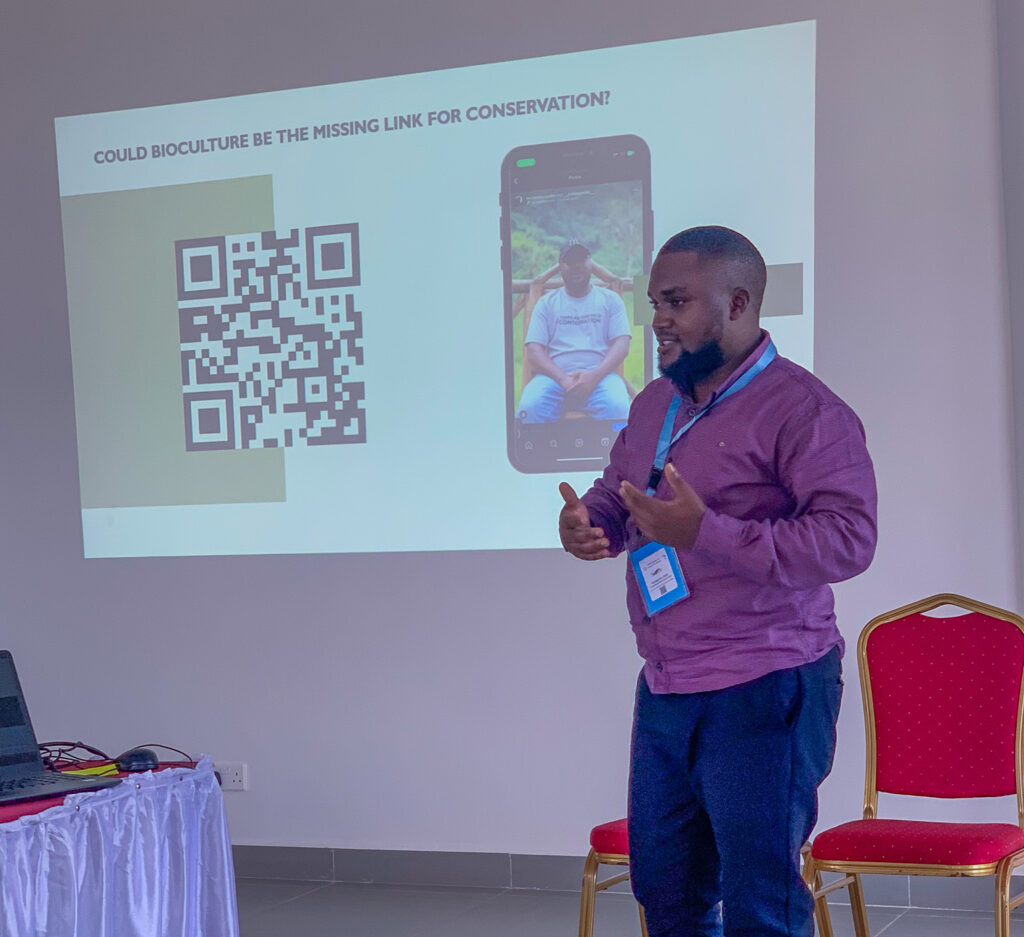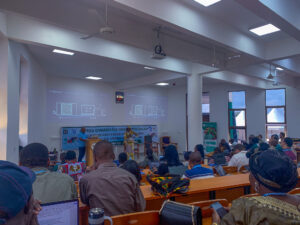Terra-NatureWild Conservation (TNC) at the African Congress for Conservation Biology (ACCB) Moshi, Tanzania – October 19-21, 2024

Terra-NatureWild Conservation (TNC) represented by Brian Kabagambe, Co-Founder and Lead, Conservation and Society recently attended the 4th African Congress for Conservation Biology (ACCB24), an event hosted by the Society for Conservation Biology – Africa Region (SCB-AR). This year, the congress took place at the College of African Wildlife Management, Mweka, Tanzania. With over 100 delegates in attendance, ACCB brought together a wide array of conservationists, local leaders, practitioners, students, policymakers, and community advocates to share insights on conservation strategies across Africa.
In line with the ACCB’s theme, “Celebrating Africa’s Unsung Conservation Heroes: Rangers and Local Communities at the Frontline,” Terra-NatureWild participated by presenting its latest project, “IHAMBA NA BANTU,” (Forests and People) in a symposium that convened National Geographic Explorers working across Africa. Supported by the National Geographic Society, this storytelling project delves into the rich biocultural landscapes of Uganda, exploring the unique relationships communities around Bwindi, Kibale, and Mgahinga forested national parks have with their natural environments.
Key Insights from our presentation.
 The IHAMBA NA BANTU project reveals insights on biocultural interdependence that illuminate how spiritual beliefs and totems influence conservation practices among Uganda’s forest communities. For instance, the Batwa people’s reverence for forest spirits and traditional plant knowledge has fostered a sustainable relationship with forest resources. The Batooro, with their deep totemic connections, further illustrate how cultural identity and conservation values can reinforce one another, promoting a conservation model rooted in ancestral wisdom.
The IHAMBA NA BANTU project reveals insights on biocultural interdependence that illuminate how spiritual beliefs and totems influence conservation practices among Uganda’s forest communities. For instance, the Batwa people’s reverence for forest spirits and traditional plant knowledge has fostered a sustainable relationship with forest resources. The Batooro, with their deep totemic connections, further illustrate how cultural identity and conservation values can reinforce one another, promoting a conservation model rooted in ancestral wisdom.
As part of our presentation, TNC emphasized the importance of culturally inclusive conservation strategies that incorporate these local values and practices. Our findings show that the interdependence of cultural beliefs and biodiversity conservation creates a “biocultural synergy.” By integrating traditional knowledge into conservation strategies, we create pathways for more sustainable and locally relevant environmental stewardship.
Looking Ahead
Our participation at ACCB has reinforced TNC’s commitment to conservation through story telling as a tool to change narratives on local community inclusion in conservation efforts. By capturing and amplifying the voices of local communities, we hope to bridge traditional knowledge with conservation science, honouring Africa’s landscapes and the people who protect them.